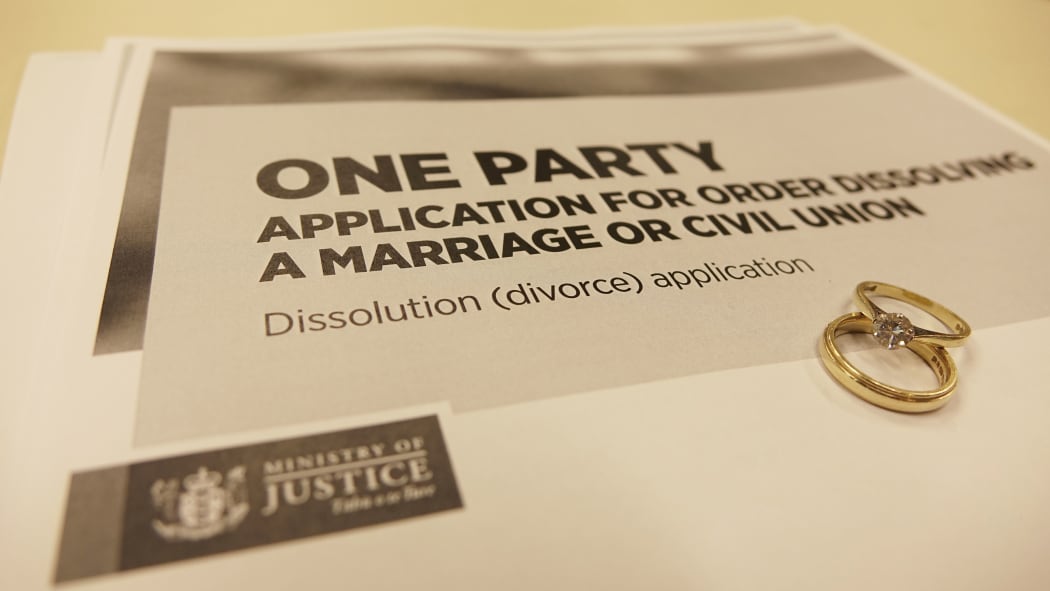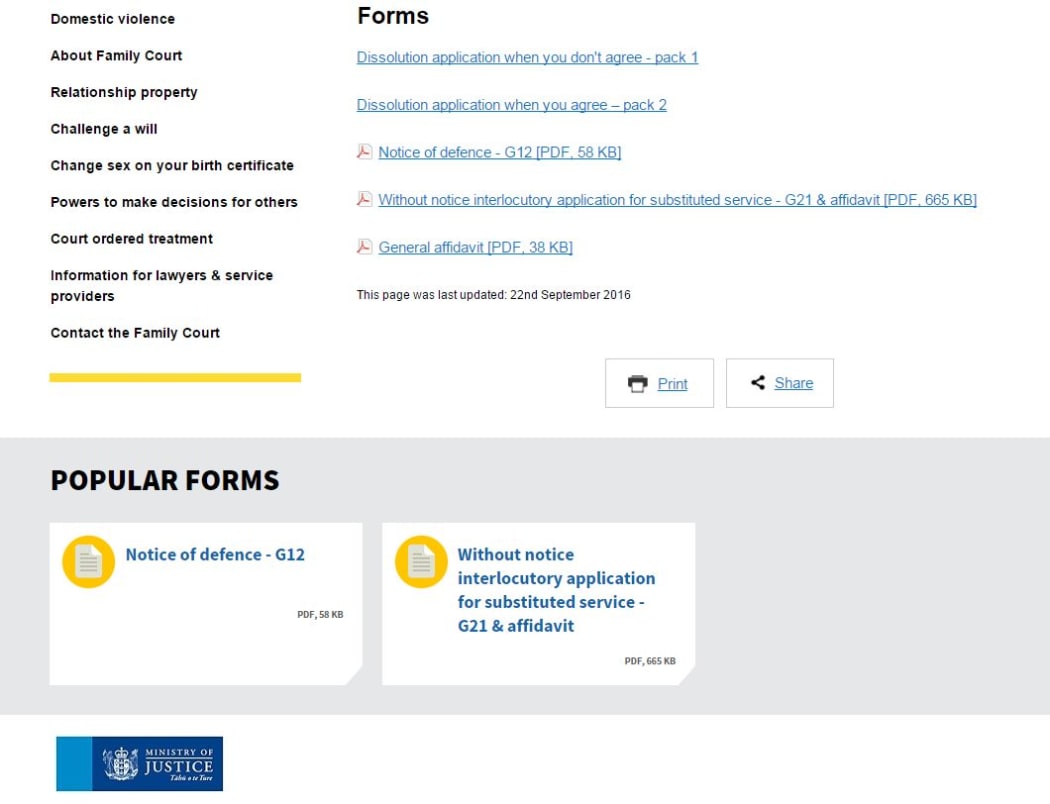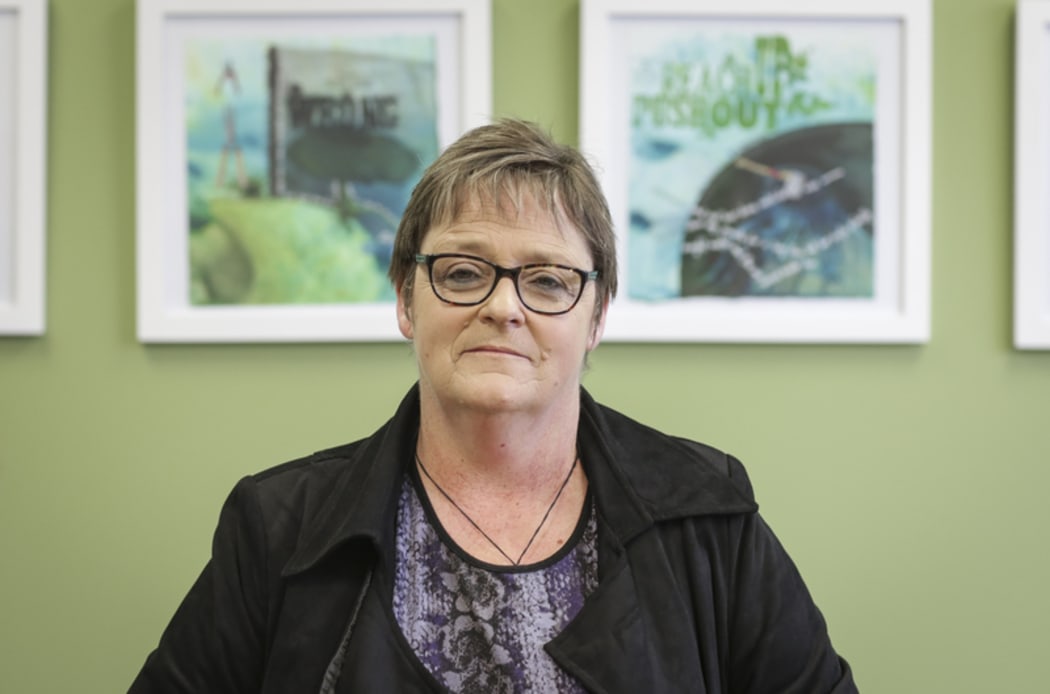Justice delayed is justice denied.
Changes to the Family Court in 2014 were supposed to help parents navigate access arrangements for their children, without having to go through the expense and hassle of having to go to court.
Two years on, some parents have faced lengthy court delays, crippling lawyers' bills and complain they are being shut out of their children's lives.

Photo: RNZ/Teresa Cowie
The law change was intended to encourage parents to resolve their problems themselves, leaving courts to deal with the most serious issues.
Those serious cases, which would usually involve allegations of violence or abuse, were to be dealt with by without-notice - or urgent - applications.
A without-notice order is when a judge has decided to grant a temporary protection order without considering the respondent's side of the story. This is to give immediate but temporary protection to the person who considers they or their dependents are in danger, or if there are allegations of violence or abuse.
Lawyers - and legal aid to cover their fees - were mostly removed from the other non-urgent cases.
But the push by the Ministry of Justice to keep lawyers and their fees out of the picture has resulted in a surge of the more serious without-notice applications, which have almost doubled in the past three years from 590 to 1104.
Concerns have been raised that parents left with the choice of either a long wait for mediation or representing themselves in court are rushing to use the urgent notices, so they can get a lawyer and get to court quicker.

Judge Laurence Ryan, Principal Family Court Judge Photo: RNZ / Aaron Smale
Principal Family Court Judge Laurence Ryan, meanwhile, said the courts were failing to meet their timeframes, with delays at their worst in Auckland, Wellington and Christchurch.
"The rules do provide that certain steps in the proceedings are taken within so many weeks. We are unable to comply with that because of the volume of work and the backlogs."
And Judge Ryan said the changes were clogging up the system.

The Ministry of Justice's website shows the without-notice forms are one of its most popular downloads. Photo: RNZ/Teresa Cowie
Some parents say urgent without-notice orders have meant they are simply cut out of their children's lives and they have no ability to respond until the court has the time to address their case.
A man, who RNZ has called Steve*, has an adult son who was served with a without-notice protection order in January that stopped him seeing his children, less than a month after he had split up with his partner.
Eight months after the order was given, Steve's son, who has been disputing it, has still not had his day in court and has very restricted access to their children.
"That's part of the major flaw of the system," Steve said. "We didn't actually get a lawyer appointed for the children for nearly three months, after that without-notice protection order. We didn't get into court for three months. The court hearing is only a directions hearing. And there still hasn't been a hearing which actually looks at the issues around the without-notice protection order."
Another man, James*, who split up with his partner last October and at the time had shared care of their four-year-old son, found himself in a similar position.
In February, when his ex-partner met someone else, she filed a without-notice application with the Family Court. Since then he went from having his son every second week to weekly supervised contact for two hours.
"We've had a social worker report done in that time and been to numerous directions conferences. The social worker report was really well balanced and very good.
"And now we're requiring a psychologist's report, which costs $4000. We fought against that psychologist's report because we felt there didn't need to be one, because the social worker's report was very positive and it was enough evidence, and also the affidavits between myself and my ex-partner were enough evidence to please the court."
James said his ex-partner's lawyer insisted on a psychologist's report, because the social worker's report was so balanced.
"They're saying on the grounds that there will be attachment issues because my son has been in the predominant day-to-day care of his mother since these orders were granted. Now I look at it and go, 'How was that my fault?' I wasn't the one that put my son in the day-to-day care of their mother, when I was quite happy to have more contact. Yet I wasn't allowed any more contact because she refused it," he said.
In both cases the men have been told their cases are unlikely to be heard until next year.
Women's Refuge Chief Executive Ang Jury said the increase in without-notice applications reflected how intimidating the process could be.

Women's Refuge Chief Executive Ang Jury said some people were opting for without-notice applications as the other option was too intimidating. Photo: RNZ / Rebekah Parsons-King
"The forms are big and complicated and many women would look at those and go 'oh my God, I can't do this' - they want a lawyer," Dr Jury said.
"Now most legal aid isn't available for on-notice applications, so if they want a lawyer, really they need to try the without-notice course."
Justice Minister Amy Adams said she wasn't aware of the individual cases, and downplayed the problem of delays.

Justice Minister Amy Adams said she could not comment on the individual cases raised by RNZ. Photo: RNZ / Alexander Robertson
"If those cases were raised with me I would certainly ask the ministry to give me information as to why that was happening. What I do know is that when people do raise issues with me about timeframes for cases to be set down for hearing, there is often some very clear information as to why that is."
"Without knowing the specific case you are talking about I can't possibly respond. But it's unfair I think to categorise that as being a standard situation. It's certainly not to the best to my knowledge. Whether it happens? Look, it may well. But what I don't know [are] the specific reasons in a particular case why that has occurred."
But Steve said, from his son's experience, everybody in the system that he had encountered seemed to be aware that it was extremely backed up and resources to manage the demand weren't available, and so people were waiting months and months.
He said, when he emailed the minister about his son's case, she told him she could not comment on individual cases and the system would work its way through.
"From our experience, the court is massively under-resourced to deal with this process and certainly a comment from the judge at the last hearing that we had was that they have targets that they simply can't reach - and they never reach - in term of time scales.
"Her argument is that when things are complicated, it takes longer, and I would very much say, well if you're aware there are a number of complicated cases, or you're aware of difficulties which cause things to take longer, you need to put more resource in to deal with it. Not just watch people's lives get significantly damaged because you are not resourcing the system."
* Some names have been changed to protect the identities and privacy of those involved.

